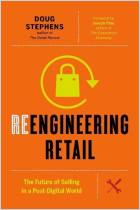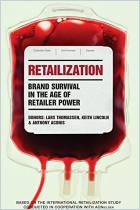Join getAbstract to access the summary!

Join getAbstract to access the summary!
David R. Bell
Location Is (Still) Everything
The Surprising Influence of the Real World on How We Search, Shop, and Sell in the Virtual One
Amazon Publishing, 2014
What's inside?
A marketing expert shows how the real world affects online consumer behavior.
Recommendation
Online start-ups sometimes view the Internet as a discrete realm of opportunity, free of any real-world impediments to commerce. Wharton Business School professor David R. Bell argues that even online retailers must study their clientele’s real-life circumstances to be able to market to them successfully online. With such data, you’ll know whether to target rural areas where consumers yearn for choices or to cultivate city dwellers who share their experiences with friends and neighbors. This entertaining and often funny book is full of compelling findings that range from the blindingly self-evident to the head-scratchingly counterintuitive. Although Bell isn’t always specific about how a retailer might act on these findings, getAbstract recommends his research-driven insights to business professors and students, web entrepreneurs, investors and managers of traditional businesses with e-commerce operations.
Summary
About the Author
Wharton School of Business professor David R. Bell, PhD, researches retailing on the Internet and through other associated technologies. An angel investor in online ventures, he created Wharton’s first virtual-commerce course. A New Zealand native, he is a “fan of all things Kiwi.”




















Comment on this summary